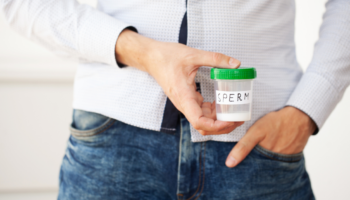A pleasure-killer is anything that blocks or inhibits pleasure in the body. Pleasure-killers can block or inhibit all kinds of pleasure, including the pleasure we receive from good food, from pleasurable activities, and from sex. Pleasure-killers may kill all types of pleasure or specific sources of pleasure.
Negative emotions, negative experiences, and some medications are some of the most common pleasure-killers. Counseling and re-evaluating medication choices can typically help remove pleasure-killers and ensure people enjoy healthy function again.
More About Pleasure-Killer
Most of us encounter several pleasure-killers in our lives. The negative emotions of stress, anger, guilt, and shame are all pleasure-killers. These emotions may be linked to sex or something else, like work, finances, or family problems. Regardless of what triggers these emotions, they can kill all types of pleasure, including sexual pleasure. Other negative emotions specific to sex, such as feeling uncomfortable or unfamiliar with sex, can be pleasure-killers for sexual pleasure. People with these specific pleasure-killers may experience pleasure in other areas of their lives. Mental health problems that cause negative emotions, such as depression and anxiety, can also be pleasure-killers.
Negative experiences can also be pleasure-killers. Experiencing rape or trauma may make it difficult for someone to enjoy sexual pleasure in future. Simple living life feeling time-poor can also be a pleasure-killer, as other activities including work and household chores may be prioritized over pleasurable activities such as sex. Even if people make time for sex, they may be too distracted to take pleasure from it.
Medications can be pleasure-killers. If you find your sexual response or drive is lacking, various drugs could be to blame including antidepressants, antipsychotics, statins, fibrates, anticonvulsants, benzodiazepines, and other medication, including some that may be purchased over-the-counter.
Pleasure-killers can work in several ways. Medications can change our chemical composition, reducing the amount of feel-good chemical dopamine or the level of testosterone, which drives libido. Emotions change the biochemistry of our brain which also impacts hormone levels, which can potentially impact our ability to experience pleasure. Our emotions can also impact our ability to focus on pleasurable sensations and feel all that comes with them.
Identifying pleasure-killers is the first step to overcoming their influence. If medications are pleasure-killers for you, your doctor may be able to prescribe new drugs which don’t negatively affect your pleasure. The impact of other pleasure killers may be reduced or eliminated by making lifestyle changes, communicating with loved ones, or entering counseling.

















